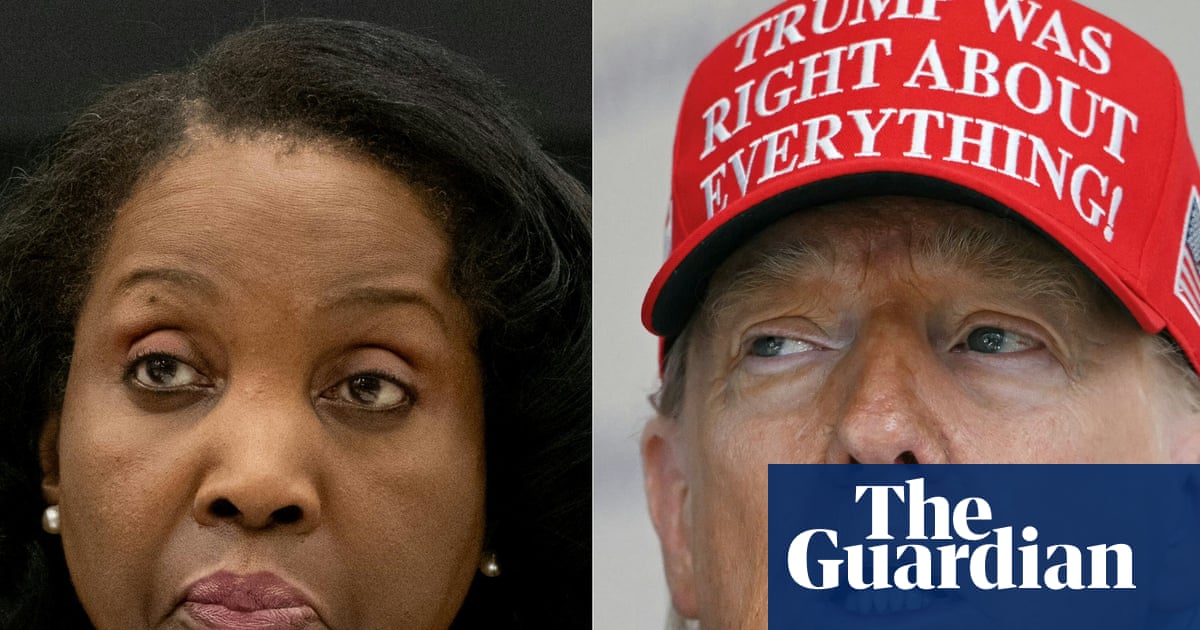Locked out of power throughout the country, Democrats see ruby-red Iowa as one of their best shots at mounting a conservative state comeback in the upcoming midterms.
And they believe Sen. Joni Ernst’s retirement, made public Friday, is the latest sign that a state President Donald Trump won by double digits presents an offensive opportunity for them next year.
Ernst’s pending exit comes as Iowa Auditor Rob Sand, the only Democrat elected statewide, runs for governor to replace departing Republican Kim Reynolds. Democrats are also enthused about picking off Republicans in Congress in a couple of potentially competitive House races in the Hawkeye State.
And while Iowa presents an uphill climb for Democrats, who have not won a presidential election there since 2012, the party has some cause for optimism: they overperformed in four state legislative special contests this year, including winning in a plus-11 Trump district this week. Democrats are anticipating air cover from their party nationally as they head into an election cycle that will determine whether they can claw back any control in Washington.
“We haven't, as Democrats, had an organized, coordinated campaign since 2018 and that's one of the many things that I think is going to happen,” said state Rep. J.D. Scholten, a Democrat who came 3 points from defeating a House Republican in a deep-red district in 2018. He predicted the state’s Senate and gubernatorial candidates would be well-funded, adding, “I think that will go a long ways."
Catelin Drey, the Democrat whose victory this week broke Republicans’ legislative supermajority, received significant financial support from the state party as the Democratic National Committee deployed its organizing team toward the end of the campaign. From Florida to Pennsylvania, Democrats have outperformed the 2024 presidential ticket in nearly 40 specials across the country this year, but the party has found the most consistent success in Iowa.
The idea that Democrats are going to reclaim any ground in Iowa two years after they lost complete control in Washington — and while they piece their party together amid record-low approval ratings — is difficult to imagine. Many Republicans dismiss it outright. Even some strategists and party officials on the left admit they may be overly hopeful. But Democrats in Iowa think Republicans are vulnerable because they have fumbled both hyper-local and national issues in the state, and believe that anti-Trump sentiment will drag down the GOP.
The prospect of taking back the Midwestern state that was once a top national battleground — one that is home to many working-class and rural voters whom the party has lost to the GOP — is too alluring for Democrats to ignore. Former President Barack Obama won Iowa twice and Democrat Tom Harkin held a Senate seat there from 1985 to 2014.
Perhaps recognizing the state could be an opportunity for the opposing party, the White House privately tried and failed to persuade Ernst to run for reelection.
Democratic leaders said their key to success in the recent special elections has been hammering an affordability message.
“Democrats have really risen. They're very motivated,” said Rita Hart, chair of the Iowa Democratic Party. “They recognize how important it is that we win some elections here, and that's why all eyes are now on 2026.”
Despite Hart’s positive assessment, Democrats were clobbered in 2024 and have yet to recover their reputation nationally, leading to endless intra-party debate about the best path forward.
Most Iowa Republicans laughed off the possibility of a blue wave in Iowa. They said they are confident about their odds of hanging onto Ernst’s Senate seat despite losing a proven incumbent. Rep. Ashley Hinson plans to enter the Senate field by the end of September with wide backing among Iowa Republicans.
However, a GOP strategist, granted anonymity in order to speak freely, said Republicans are more worried about Sand’s gubernatorial campaign, which raised $2.25 million in the first 24 hours after its launch, breaking a state record. Republican Rep. Randy Feenstra has formed an exploratory committee, and will likely face a crowded primary field.
“Rob is a proven communicator,” the strategist said. “Rob is just running as ‘I'm not actually a Democrat.’ He’s just different.”
Democrats’ spree of special election wins — starting in January when a Democrat flipped a statehouse seat in a district Trump won by 21 points — has made some Iowa Republicans uneasy. But most GOP operatives maintain that Democrats lack the necessary base of support to pull off a statewide win, and dismiss the results as isolated bursts of energy.
“While that's a big get for the Democrats here, I just still do not see the type of organizing on the ground or the infrastructure that's necessarily going to yield widespread statewide results in 2026,” said Tyler Campbell, a Republican strategist in Iowa.
Some in the GOP said there is a deeper dissatisfaction at play in the results.
Republican Woodbury County Supervisor Mark Nelson took to Facebook this week to unload after Drey won her state Senate race, which he said prompted “a lot of questions” and “anger” at GOP officials.
“I don’t think it was about Donald Trump at all,” he said. “I think it was about Kim Reynolds and I think it’s about what the Republicans have done in the Iowa legislature for several years now.”
He cited a state battle over eminent domain, which culminated in June when Reynolds vetoed a bill that would have limited private pipelines’ use of the controversial practice. “The taking of private property for private gain is just wrong. It just is. I’m sorry, governor,” he added.
Democrats cite other issues driving voters to question their allegiance to the GOP, including a lackluster regional economy, a controversial privatized Medicaid system and environmental concerns. Rep. Don Bacon (R-Neb.) said earlier this month that “what we’re seeing is basically a recession economy in Nebraska and Iowa right now.”
Democrats also argue Iowa’s massive expansion of school vouchers under Reynolds has hurt public schools, another issue the party believes helps them with independents and Republicans. Private schools have boomed since the passage of Iowa’s school choice law in 2023 — which allows parents to send children to those institutions using state funds — while more than a dozen public schools have closed.
“The health care issue, the education issue, the water quality issues and eminent domain are kind of like a perfect storm of dissatisfaction right now in Iowa,” said Irene Lin, a Democratic strategist and veteran of races in the state.
She acknowledged Democrats might be fueled by hopium in Iowa, but added, “it's still worth fighting for because there's no path to the House or Senate without Iowa going blue.”

 German (DE)
German (DE)  English (US)
English (US)  Spanish (ES)
Spanish (ES)  French (FR)
French (FR)  Hindi (IN)
Hindi (IN)  Italian (IT)
Italian (IT)  Russian (RU)
Russian (RU)  5 hours ago
5 hours ago
























Comments